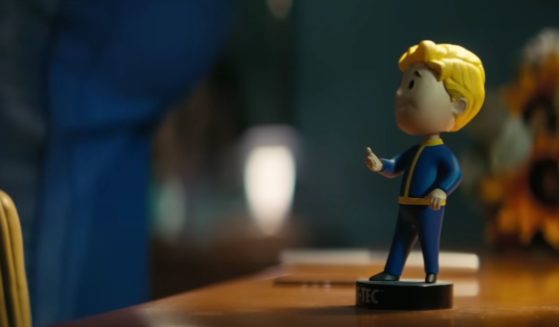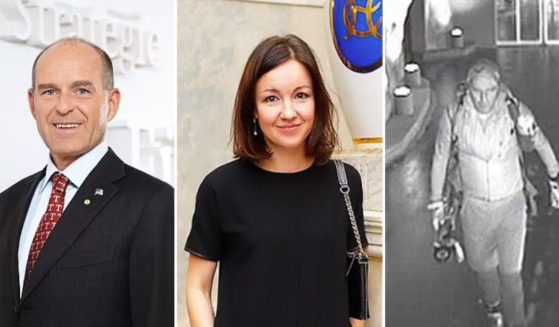Establishment Media Caves: Forced To Make Major 'Updates' After Attacking Trump with Fake News
I always get amused when the media gets all riled up about being called “fake news” by the Trump administration.
It’s not because I didn’t expect them to; of course they have to. It’s an insult. No, the laughter instead comes from the way they do it, like an overly theatrical denial from a villain-of-the-week on “Columbo.”
To me, it’s kind of a tacit admission that they are a kind of fake news — not perhaps in the way the term originally came to prominence, as a small set of obviously counterfeit stories that the media thought might have actually had an influence on the election, but instead as an entity mostly interested in pushing a narrative as opposed to reporting the facts as they are.
If you needed an object lesson in what I’m talking about, just take a look at the outrage over President Donald Trump’s alleged immigration policies this past week or two — and the low-key apologies that eventually followed when the information that fueled the outrage proved to be less than accurate.
The whole kerfuffle began when The New York Times and USA Today — both frequent villains-of-the-week in media-“Columbo” complex — published stories which claimed that the Trump administration had “lost track” of 1,500 children who had been separated from their parents as they were apprehended crossing the U.S. border.
First, liberals began circulating alleged pictures of these “children” being kept in cells.

As it turns out, those pictures were from 2014, when the Obama administration had to deal with a massive influx of unaccompanied minors crossing the southern border.
Then there were other forms of protest, particularly over a tweet which showed Ivanka Trump with her child. This prompted a whole different round of Twitter outrage.
Isn't it the just the best to snuggle your little one — knowing exactly where they are, safe in your arms? It's the best. The BEST. Right, Ivanka? Right? https://t.co/X79r8aWInc
— Patton Oswalt (@pattonoswalt) May 27, 2018
Uh-oh. Better watch out, White House. Ratatouille is on the case of the missing children.
Oh, and there was also a comment about that tweet by some comedienne on TBS you may have heard about, as well as conspiracy theories that the children might have been turned over to human traffickers.
As it turns out, the story at The Times’ website that in part fomented all of this is no longer there. It’s been replaced by a story called “How Liberals Got Lost on the Story of Missing Children at the Border.”
“Over the weekend, you may have seen a horrifying story: Almost 1,500 migrant children were missing, and feared to be in the hands of human traffickers. The Trump administration lost track of the children, the story went, after separating them from their parents at the border,” the new story by Amanda Taub reads.
“The news spread across liberal social media — with the hashtag #Wherearethechildren trending on Twitter — as people demanded immediate action,” Taub writes. “But it wasn’t true, or at least not the way that many thought. The narrative had combined parts of two real events and wound up with a horror story that was at least partly a myth.”
At the end of the story, there is a bit in italics, not identified as a correction: “This article has been updated to clarify that the Trump administration’s new policy is to prosecute all undocumented border crossers and that the result is to separate parents from children; the policy’s explicit purpose is not to separate undocumented parents and children.”
However, as Breitbart notes, an earlier version of this addendum was a bit more, well, honest: “Correction: An earlier version of this column mischaracterized the legal status of 1,475 undocumented migrant children who crossed the U.S.-Mexico border without their parents. Those children were placed in the custody of sponsors screened by the U.S. Department of Health & Human Services. They are no longer in federal custody.”
USA Today issued a similar retraction. The Washington Post and Seattle Times, meanwhile, claimed that the purpose of the Trump administration policy isn’t to separate children from parents crossing the border by prosecuting the parents, but that it’s part of a wider, zero-tolerance policy for illegal border-crossers, a completely different thing.
In their kinda-apology piece, did The New York Times blame their own poor reporting for the misunderstanding? Please. They blamed Trump’s “harsh immigration policies,” which are a “departure from norms.” (By “departure from norms,” read “departure from the Obama administration’s policies,” since they’re basically talking about a new administration that’s actually made the “harsh” decision to enforce our immigration laws as written.)
“That departure from norms has caused tremendous suffering for immigrants and their communities. On a broader scale, it is revealing that the story of the missing children felt so true to so many people,” Taub writes. “It shows the ways that shattering norms also damages public trust.” (Emphasis ours.)
“Research shows that the loss of this trust — particularly when combined with extreme polarization — can weaken support for democracy over time. This story’s viral spread suggests that the administration’s treatment of immigrants could have far-reaching consequences for all Americans.”
Wait. The story spread because media outlets — led by The Times — got it wrong. Even if we were to assume the best of intentions on the part of The Times’ reporters, they still don’t get to blame the Trump administration for “shattering norms” for getting it wrong and thus eroding public trust in them. That’s not how it works.
How did liberals get lost on the story of missing children at the border? Because you led them astray, Gray Lady. This is legit one of the worst excuses I’ve heard that hasn’t come out of the mouth of Marion Barry or those around him. That’s next level excuse-making, particularly in a week that saw someone pin remarks that got them fired on taking Ambien.
It’s also legitimately fake news, not just fake news in the narrative-building sense. They said that children were missing. That was very much not true. The only way you get faker than that is either The Onion/Babylon Bee or worldnewsweekly2hourly24.com.ru.net route. And apparently, “shattering norms” is to blame for all of this. Right.
There are so many other problems with this story and the rash of mea culpas it’s inspired that I could write a thesis on it (exactly what would it take to convince anyone writing this empurpled prose lambasting the new zero-tolerance policy that trying to illegally cross the border into the United States with your child could possibly make you an unfit parent, for example?), but it’s enough to just settle on the fake outrage their own mistakes have engendered.
Much like the crook who gives too much away by their reaction when Columbo asks just one more question before he leaves their mansion, the media has yet again given far too much away.
Truth and Accuracy
We are committed to truth and accuracy in all of our journalism. Read our editorial standards.












